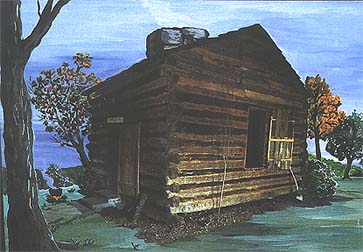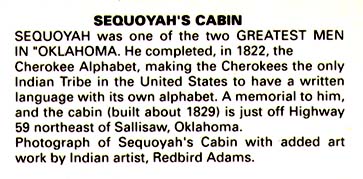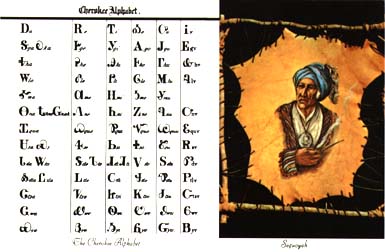SOME NATIVE AMERICANS
&
THE CONQUEST OF THE WEST
Some cautionary remarks from the receivers of the conquest:
A people without history is like the wind on the buffalo grass. ---Lakota
The whites told only one side. Told it to please themselves. Told much that is not true. Only his own best deeds, only the worst deeds of the Indian has the white man told. ---Yellow Wolf (Nez Perce)
You [white people] lack credibility in what you say. And so long as you feel no need to present a credible and comprehensive understanding of man’s history, the governments of the societies in which you live will see no need to have credibilityin what they do. ---Vine Deloria, Jr.
It was better to die fighting on the plains than to live in the irons of the whites. ---Hump
One does not sell the earth upon which the people walk. ---Crazy Horse
For me there is no country that can hold the tracks of the moccasin and the boots of the white-man side by side. ---Crazy Horse
Crazy Horse was dead. He was brave and good and wise. He never wanted anything but to save his people, and he fought the whites only when they came to kill us in our own country. He was only thirty years old. They could not kill him in battle. They had to lie to him and kill him that way. ---Black Elk
"Probably the best thing those Americans could have done was to return the country to the people they called Indians, the people from whom the land had been originally stolen. Then, they should have asked those Indians to teach them how to live together as human beings in harmony with that land. But being the way they were, that was the one thing they could never have done. And so they all perished -- utterly. However, one good thing about those humans, their bodies were recyclable." ---E.E. Lynlar. The Definitive History of the Universe. Vol. XXVII, Chapter 9: "Earth and Some of Its Inhabitants," p.269.
I am no white man. They are the only people who make rules for others and say: ‘If you stay on one side of this line it is peace, but if you go on the other side I will kill you. ---Crazy Horse
It does not matter where his[Crazy Horse] body lies, for it is grass; but where his spirit is, it will be good to be. ---Black Elk
SOME RELEVANT, I TRUST, QUOTATIONS...
CHRISTOPHER COLUMBUS, in his journal for October 12, 1492 [writing about the Arawaks (Lucayans) of San Salvador]:
"The people of this island...are artless and generous with what they have, to such a degree as no one would believe....If it be asked for, they never say no, but rather invite the person to accept it, and show as much lovingness as though they would give their hearts...."
. . . .
They all go naked as their mothers bore them, and the women also....Some of them paint their faces, some their whole bodies, some only the nose. They do not bear arms or know them, for I showed to them swords and they took them by the blade and cut themselves through ignorance."
. . . .
These people are very unskilled in arms....with fifty men they could all be subjected and made to do all that one wished."
Various English writers, 1605-1610, describing the warmth and trusting behavior of the Indians – yet attributing this behavior to divine intervention, not to the character of the Indians themselves, or to some yet unknown sinister purpose:
"God caused the Indians to help us with fish at very cheap rates."
"(The Indians) are naturally given to treachery, howbeit we could not find it
in our travels up the river, but rather a most kind and loving people."
"(The Indians) were so malicious, that they seldom forget an injury."
WAHUNSONACOCK, of Virginia, to John Smith, 1609:
"Why will you take by force what you may have quietly by love? Why are you jealous of us? We are unarmed and willing to give what you ask, if you come in a friendly manner, and not with swords and guns, as if to make war upon an enemy."
THOMAS JEFFERSON, in France, 1786:
"It may be regarded as certain that not a foot of land will ever be taken from the Indians without their consent. The sacredness of their rights is felt by all thinking persons in America as much as in Europe."
JOHN QUINCY ADAMS, 1802:
"The Indian right of possession itself stands, with regard to the greatest part of the country, upon a questionable foundation. Their cultivated fields; their constructed habitations; a space of ample sufficiency for their subsistence, and whatever they had annexed to themselves by personal labor, was undoubtedly by the law of nature theirs. But what is the right of the huntsman to the forest of a thousand miles over which he accidentally ranged in quest of a prey? Shall the liberal bounties of Providence to the race of man be monopolized by one of ten thousand for whom they were created? Shall the exuberant bosom of the common mother, amply adequate to the nourishment of millions, be claimed exclusively by a few hundred of her offspring?"
THOMAS JEFFERSON, To General William Henry Harrison, Jefferson’s Governor to the territory north of the Ohio River, 1803:
"To promote this disposition to exchange lands which they (Indians) have to spare and we want, for necessaries which we have to spare and they want, we shall be glad to see the good and influential among them in debt, because we observe that when these debt get beyond what the individuals can pay, they become willing to lop them off be a cession of land."
  
|
TECUMSEH, to a gathering of leaders and warriors of the southern nations and confederations, about 1811:
"Where today are the Pequot? Where the Narraganset, the Mohican, the Pokanoket and many other once powerful tribes of our people? They have vanished before the avarice and oppression of the white man, as snow before a summer sun. Will we let ourselves be destroyed in our turn without making an effort worthy of our race? Shall we, without a struggle, give up our homes, our country bequeathed to us by the Great Spirit, the graves of our dead and everything that is dear and sacred to us? I know that you will cry with me, Never! Never!"
ALEXIS DE TOCQUEVILLE, French traveler in North American and author of Democracy in America, 1840, explaining to his French readers...
How the Americans take the Indians "by the hand and transport them to a grave far from the lands of their fathers." He predicted that the eastern Indians would remain undisturbed on the lands west of the Mississippi (Oklahoma), to which they had been illegally and forcibly removed in the 1830s, only until the white man decided he wanted that land also. Then, the Indian, exposed to the assaults of "the most grasping nation on the globe would be driven from one final location to another until their only refuge is the grave.
CHIEF SEATTLE, in answering no to President Franklin Pierce’s offer of a reservation elsewhere, if he and his people would sell their land in Washington territory, 1854:
"How can you buy or sell the sky, the warmth of the land? The idea is strange to us. If we do not own the freshness of the air and the sparkle of the water, how can you buy them?"
GENERAL PHIL SHERIDAN, 1870s:
"The only good Indian is a dead Indian."
THEODORE ROOSEVELT, when some years later asked to comment on the "infamous" Sheridan quotation:
"I wouldn’t go so far as to say ‘The only good Indian is a dead Indian,’ but I believe it is true in nine cases out of ten: and I wouldn’t look too closely into the case of the tenth."
SEMINOLE COUNTY NEWS (white owned Oklahoma newspaper, in defense of the common practice of cheating Indians out of their land, water, timber, coal and oil rights), 1908:
"Sympathy and sentiment never stand in the way of the onward march of empire.
. . . .
The days of the Indian who values the domain only in its wild state, and the good-for-nothing lazy criminal nigger, are numbered in Seminole County."
. . . .
They are on the level with all humanity and like water, they will seek their own level. If they don’t learn the value of property and how to adjust themselves to surroundings, they will be ‘grafted’ out of it – that is one of the unchangeable laws of God and the constitution of man."
CHIEF SEATTLE, stating some conditions by which his people would consider the inevitable move to a new and strange place, to make way for the whites, 1854:
"You must teach your children that the ground beneath their feet is the ashes of our grandfathers. So they will respect the land, tell your children that the earth is rich with the lives of our kin. Teach your children what we have taught our children, that the earth is our mother. Whatever befalls the earth befalls the sons of the earth. Man did not weave the web of life, he is merely a strand in it. Whatever he does to the web, he does to himself.
. . . .
Even the white man, whose God walks and talks with him as friend to friend, cannot be exempt from the common destiny. We may be brothers after all. We shall see. One thing we know, which the white man may one day discover – our God is the same God. You may think now that you own Him as you wish to own our land; but you cannot. He is the God of man and his compassion is equal for the red man and the white. This earth is precious to Him, and to harm the earth is to heap contempt upon its Creator. The whites too shall pass; perhaps sooner than all other tribes. Contaminate your bed, and you will one night suffocate in your own waste."
Charlot, Flathead chief, spoke to his people in 1876 about the white man, at the time when the whites were attempting to drive the Flatheads from their ancestral lands in the Bitterroot Valley of Montana:
"Since our forefathers first beheld him, more than seven times ten winters have snowed and melted...We were happy when he first came. We first thought he came from the light; but he comes like the dusk of the evening now, not like the dawn of the morning. He comes like a day that has passed, and night enters our future with him...
. . . .
To take and to lie should be burned on his forehead, as he burns the sides of my stolen horses with his own name. Had Heaven’s Chief burnt him with some mark to refuse him, we might have refused him. No; we did not refuse him in his weakness. In his poverty we fed, we cherished him – yes, befriended him and showed him the fords and defiles of our lands...
. . . .
He has filled graves with our bones. His horses, his cattle, his sheep, his men, his women have a rot. Does not his breath, his gums stink? His jaws lose their teeth and he stamps them with false ones; yet he is not ashamed. No, no; his course is destruction; he spoils what the spirit who gave us this country made beautiful and clean...
. . . .
His laws never gave us a blade, nor a tree, nor a duck, nor a grouse, nor a trout.... How often does he come? You know he comes as long as he lives, and takes more and more and more, and dirties what he leaves.
. . . .